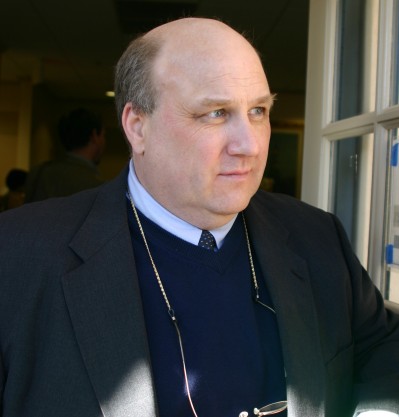 Inspiring and heart-warming day yesterday, as Ashley Null paid a visit to Cranmer Hall to speak to us about none other than Thomas Cranmer himself. Ashley Null is world-class scholar with a deeply pastoral heart, and it was a real pleasure to meet him.
Inspiring and heart-warming day yesterday, as Ashley Null paid a visit to Cranmer Hall to speak to us about none other than Thomas Cranmer himself. Ashley Null is world-class scholar with a deeply pastoral heart, and it was a real pleasure to meet him.
At the centre of the English Reformation was the matter of the heart. Richard Rolle (c.1290/1300-1349) was widely read, and called for heartfelt devotion to God, brought about through meditation on the Scriptures. Walter Hilton (c.1340/45-1396) was also highly influential, and exhorted people to cultivate this devotion not through the ‘religious’ life (as a monk or nun, or as a hermit like Rolle), but through the ‘mixed life’, combining times of devotion (quiet times, we might say) with a ‘secular’ life of work and service.
The fifteenth century Wars of the Roses had left England deeply aware of the need for moral reformation. Lady Margaret Beaufort, mother of Henry VII, was a key figure in this movement. The Tudor humanists believed in the power of the Bible to move Christians to love God more deeply, and hence to serve God more faithfully. So they made great efforts to renew the preaching ministry of the church, so that ordinary people throughout the country would be able to practise the ‘mixed life’ through meditation on the Scriptures.
However, it was only through the continental Reformation that English church leaders began to discover the secret to the problem of the heart. The common practice in that time was to meditate on Scripture by contemplating the moral examples contained in it. So one would consider Joseph, and how he behaved in Potiphar’s household, and hope thereby to be moved inwardly to obey God in the way that Joseph did. But this wasn’t working. A moral example can’t cause you to love God. The only thing that can give birth to love is love. And this was the key to the English Reformation. The Reformers had discovered the wonderful news that God loves us unconditionally, and that we don’t need to be good before God will love us. So it is not a matter of fear of judgment leading to moral improvement leading to being accepted by God. But rather, God’s unconditional love leads to a renewed and thankful heart which leads to a transformed life of service to others. As Ashley Null writes in Reformation Anglicanism, ‘In short, only the unconditional love of God made known in free salvation can birth a selfless love for God and others in the human heart’ (p. 56).
This thread runs through all of Cranmer’s works. As we hear the Scriptures telling us of God’s unconditional love, a burning fire of love is birthed in our hearts, and our lives are transformed as a consequence. For example, here is the collect for purity from the communion service (emphasis added):
Almighty God, unto whom all hearts be open, all desires known, and from whom no secrets are hid: Cleanse the thoughts of our hearts by the inspiration of thy Holy Spirit [i.e., as we hear the Scriptures], that we may perfectly love thee, and [as a consequence] worthily magnify thy holy Name; through Christ our Lord. Amen.
In (Ashley Null’s) summary, Cranmer focused on the heart, because he believed that
What the heart loves, the will chooses, and the mind justifies.
And that was (bascially) just the first session! The second and third sessions focused on some of Ashley Null’s recent research, looking (respectively) at how Cranmer changed his mind about clerical celibacy while falling in love in Germany, and why he changed his mind about the nature of the Lord’s presence in the Supper.